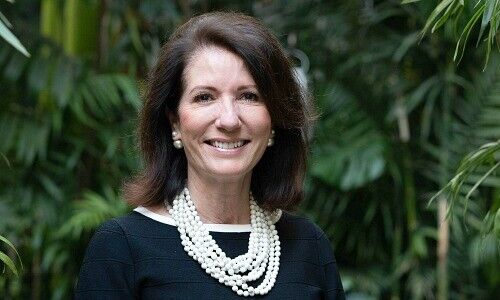Julius Baer's efforts to recover from a Latin American scandal have been rockier than expected. finews.com takes stock three years into Latam boss Beatriz Sanchez’s tenure.
In December of 2017, Zurich-based Julius Baer hired Beatriz Sanchez away from Goldman Sachs to run its Latin American wealth arm. The job blew up four months later when it emerged that Finma was investigating the wealth manager over wealthy Venezuelan clients.
Three years into the job, Sanchez appears finally prepared to devote her attention to make the business in Latin America grow. At 8.2 percent annually, growth in this wealth market is second only to Asia and it remains a compelling market for Swiss private banks.
Asian Counterweight
The wider Americas represents a natural counterweight to Asia, Julius Baer’s second home market. The two regions are also home to the last two uncharted onshore spots on the map: North America and China. The wealth manager is poised to decide in 2021 how it wants to handle the U.S., a business it exited by selling a New York office to UBS in 2004.
The Swiss bank has been coy with how much it manages in Latin America: it says only that about one-third of its total 426 billion Swiss francs ($481 billion) in assets are managed on behalf of clients from the region and other growth areas including Russia, the Middle East, and Eastern Europe.
Damage Control
Venezuela, which culminated in a wide-ranging sanction earlier this year, has overshadowed Sanchez’s and Julius Baer’s plans for the region. A 64-year-old veteran Miami private banker, Sanchez was scrambling to control the damage weeks into the job.
She set about shutting down in Venezuela and Panama and overseeing a deep-cleanse of client books. She also suffered several key setbacks: a Latin America team run by Marc Braendlin left for Pictet, key Uruguay banker Fabio Kreplak defected to Mirabaud are part of a slew of more than 40 bankers to leave under her tenure.
Regional Sale?
Sanchez has added two key bankers, hiring Credit Suisse’s Jorge Torea as the market chief in Brazil, and Andrea Cuomo to stabilize in Uruguay. Her backers acknowledge that 2020 was a year of transition – and point out that Covid-19 has hit Middle and South America heavily, both economically and as a public health crisis.
Julius Baer ultimately took the region – and others – through a review last autumn, two sources familiar with the matter told finews.com. It weighed options including a sale of its activities in Latin America, or a massive expansion, they said. A spokesman for the bank didn’t comment.
Surviving Slim-Down
By October of last year, when Sanchez emerged as one of three regional heads in a slimmed-down version of Julius Baer’s executive suite, CEO Philipp Rickenbacher seemed to have decided to stick with the region. She has spent much of her time making sense of a jumble of activities including acquisitions as well as – to much grumbling from the private banking rank-and-file who decry her culture to be «big bank» alien to Julius Baer – rolling out new, far stricter handling of acquiring clients in the region.
This year and last, Julius Baer also wrapped two Montevideo offices into one, merged Brazilian Reliance and GPS into a family office set-up under CEO Jan Karsten, and took a majority stake in Mexico City-based NSC. Sanchez was also heavily involved in the sale of Julius Baer’s Bahamas bank to Ansbacher since some Latam clients had booked their assets in the commonwealth.
Clarity on U.S. Onshore
She has advanced new people: Tobias Murer, formerly chief of staff to ex-CEO Bernhard Hodler, was dispatched to her deputy for offshore Latin America. His appointment is interpreted by some as an attempt to kickstart the U.S. presence idea. Rodrigo Bonfim, who followed her from Goldman Sachs, is Murer’s counterpart onshore, in Uruguay.
For Sanchez, who finally stanched the bleeding of assets in the region this year, the U.S. question remains key: she was hired to build a platform in Miami as a bridgehead for wealthy South Americans. With vast parts of the clean-up over, Julius Baer owes investors confirmation as well as an outline of how and when it plans to do so.



































